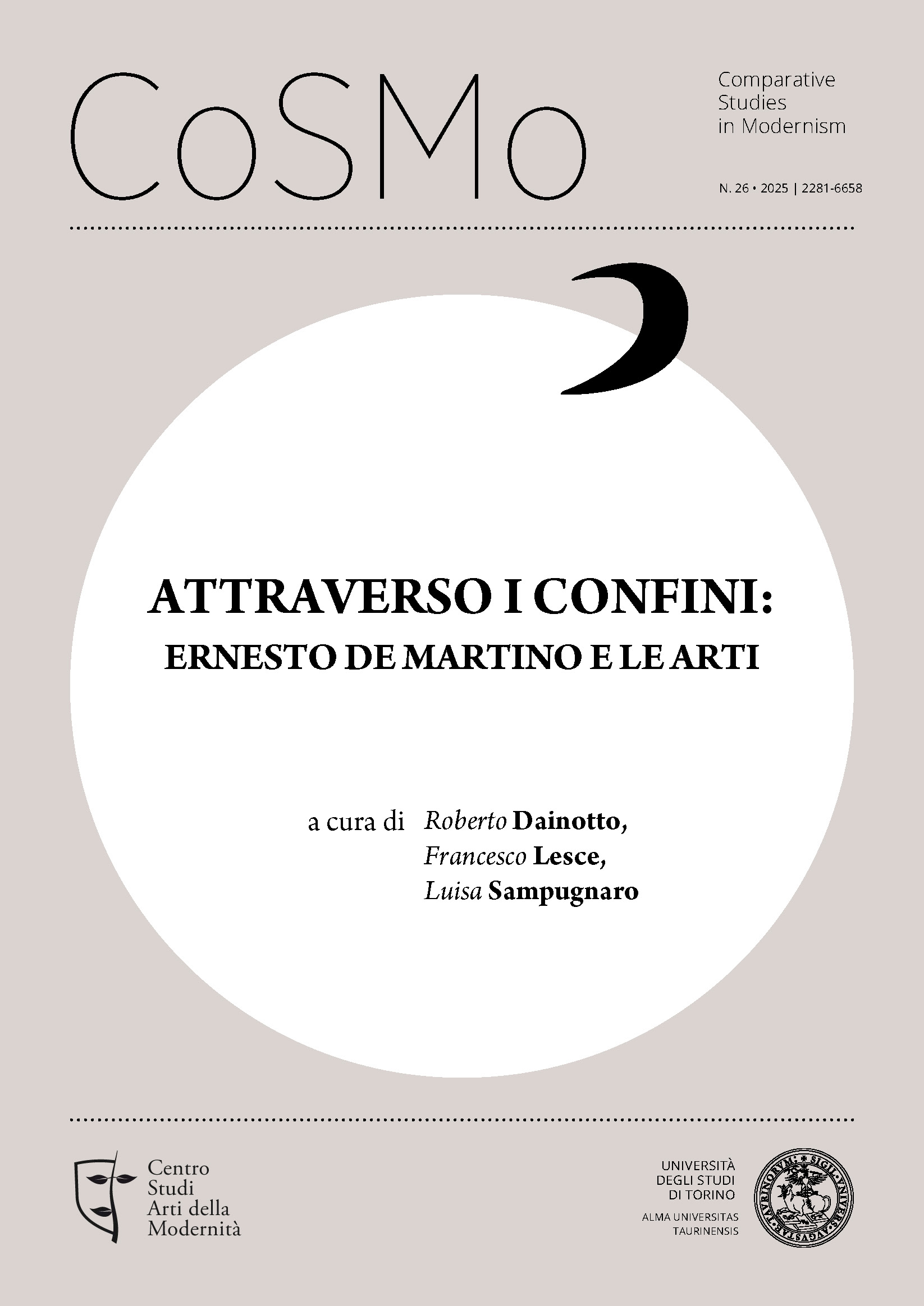Necromancers, Visionaries, Ethnologists
Ernesto De Martino and the Experience of Dysregulation between Poetry and Ethnology
DOI:
https://doi.org/10.13135/2281-6658/12174Keywords:
De Martino, Rimbaud, Dérèglement, Ethnology, LiteratureAbstract
In The End of the World De Martino recognizes that literature and visual arts of the twentieth century can be considered as symptoms of a widespread and deep-rooted malaise that affects many aspects of contemporary consciousness. Art is a tool for immersing oneself in the depths of the artist’s personal unconscious and the collective unconscious of society, thus representing a “journey to the underworld” facilitated by the artist’s voluntary choice to renounce form, their own cultural perspective, and their own personality, even embracing the allure of the exotic, the primitive, and "otherness" in a broad sense. In my contribution, I would like to attempt to interpret the artist’s “catabasis” by highlighting the category of dérèglement, which De Martino derives from the reading of the French poet Rimbaud, and to show how the practice of dérèglement is not only related to the dialectic of contemporary artistic production. Ethnological practice, with its movement of questioning and reclaiming cultural heritages, is also a form of intentional and controlled dérèglement.
Downloads
Downloads
Published
Issue
Section
License
Authors keep the copyrights for their work and give the journal the work’s first publication copyright, which is at the same time licensed under a Creative Commons License – Attribution, which in turn allows other parties to share the work with an acknowledgement of the work's authorship and initial publication in this journal.
Content Licence

You are free to copy, distribute and transmit the work, and to adapt the work. You must attribute the work in the manner specified by the author or licensor (but not in any way that suggests that they endorse you or your use of the work).
Metadata licence

CoSMo published articles metadata are dedicated to the public domain by waiving all publisher's rights to the work worldwide under copyright law, including all related and neighboring rights, to the extent allowed by law.
You can copy, modify, distribute and perform the work, even for commercial purposes, all without asking permission.





